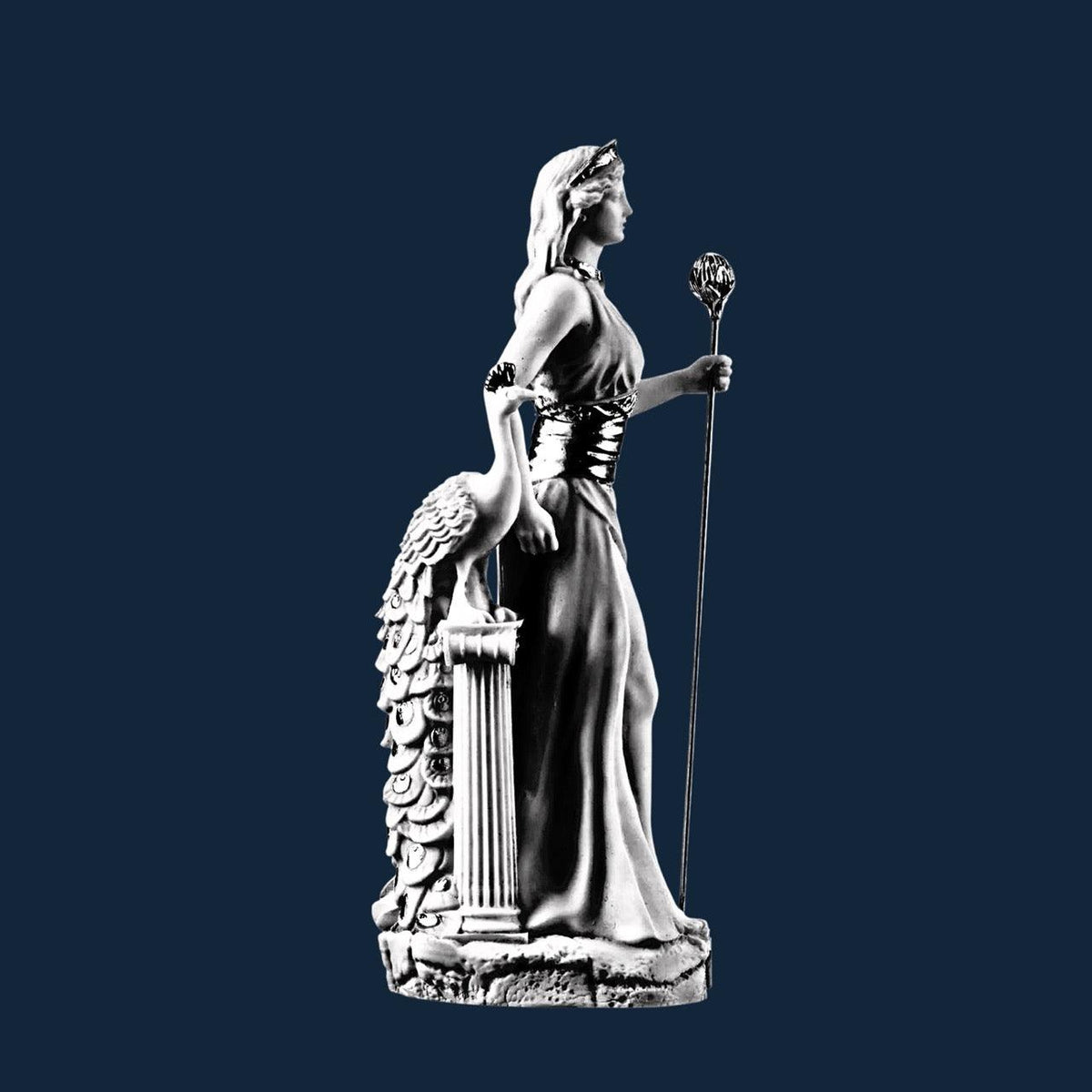Who is Eileithyia? The Great Goddess of Childbirth and Labor Pain
Jun 26, 22

Who is Eileithyia? The Great Goddess of Childbirth and Labor Pain
Eileithyia, also known as Eilaithiia and Eilothye, is the great goddess of childbirth and labor pains. She was a powerful goddess from the earliest days of Greek mythology. In fact, Eileithyia was so revered in ancient Greece that she had her own Oracle at her sacred grove in Megalo Kastro at Thera (Santorini).
Her worship spread throughout the Aegean islands and even to Rome — where she was called Lechetas. Eileithyia is not just a goddess associated with childbearing women; she is a goddess who assists them when they give birth.
She is considered a helper deity for women during labor pains, childbirth and postpartum recovery. Read on to learn more about this lesser-known goddess!
The Origins of Eileithyia
Eileithyia is an important goddess in the earliest Greek pantheon. She is the daughter of Zeus and Hera, the sister of Ares and Hebe, and the aunt of Asklepios.
Eileithyia is a goddess in her own right and is not just connected with childbirth because of her mother, Hera. She is often compared to Artemis and to Demeter, who are also childless goddesses.
Eileithyia is a goddess of the rising of the tides, the way in which they come up from the depths. She is a goddess of the coming of the air, the way the air moves and the clouds form.
She is a goddess of the coming of the rain, the way in which water gathers and moves as rain.
Why Is Eileithyia Important?
Eileithyia is one of the first goddesses ever recorded in Greek mythology. She was worshipped across the Mediterranean and was integral to the ancient Greek culture.
With the majority of her worship occurring in the first millennium BC, it is likely that her origins are very old. More than just being an important goddess, Eileithyia is also important to modern cultures.
For example, in some parts of the world, births are still performed outside, where Eileithyia is believed to be present. Eileithyia is a goddess of labor and birth, and her worship is associated with the use of midwives.
There is evidence that midwives have been practicing for thousands of years. This suggests that the role of midwives, and their relationship to Eileithyia, has been consistent across human history.
What Does Eileithyia Represent?
As mentioned above, Eileithyia is the goddess of childbirth, child rearing and women’s health. Many also believe that she is a goddess of fertility, which makes sense when thinking about her association with childbirth.
Eileithyia is one of the oldest and most important goddesses of ancient Greece, and she was especially important in the island of Aegina. Her name means “gentle birth,” and she is often seen as a healer who helps women through childbirth and the process of raising young children.
Eileithyia was worshipped at the Temple of Eileithyia in southern Italy, and there is also evidence that her cult was present in the Peloponnese.
Where Is Eileithyia’s Sanctuary?
The Sanctuary of Eileithyia, also known as the Temple of Eileithyia, was in Megalo Kastro at Thera on the island of Santorini.
The Temple of Eileithyia was made up of the main building and a grove, and likely existed from the end of the Mycenaean era until 91 BC, when the region became part of the Roman Republic. Eileithyia’s sanctuary was built on the north side of the island facing the Aegean Sea.
It was considered to be one of the greatest sanctuaries in the region and welcomed visitors from across the Mediterranean. The Temple of Eileithyia was destroyed when the island was hit by a volcanic eruption, and parts of the sanctuary were found on the beach of southern Santorini.
Celebrating Eileithyia: A Festive Meal for Mom and Baby
For those interested in celebrating this goddess, there are several options. You can bake a loaf of Eileithyia’s Bread, which is similar to what ancient Greeks baked in her honour.
You can also prepare Eileithyia’s Porridge, which is also known as colace. You could also make Eileithyia’s Drink or drink it! This beverage is made from barley, honey and water.
You could also make a special meal for a pregnant woman and her baby. You can learn more about how to celebrate Eileithyia here.
Summary
The origins of Eileithyia can be traced back to the very earliest days of Greek mythology. Eileithyia is a goddess of the rising of the tides, the way in which they come up from the depths.
She is a goddess of the coming of the air, the way in which the air moves and the clouds form. She is a goddess of the coming of the rain, the way in which water gathers and moves as rain.
Eileithyia is one of the first goddesses ever recorded in Greek mythology. She was worshipped across the Mediterranean and was integral to the ancient Greek culture.
More than just being an important goddess, Eileithyia is also important to modern cultures. Eileithyia is a goddess of labor and birth, and her worship is associated with the use of midwives.
There is evidence that midwives have been practicing for thousands of years. This suggests that the role of midwives, and their relationship to Eileithyia, has been consistent across human history.





